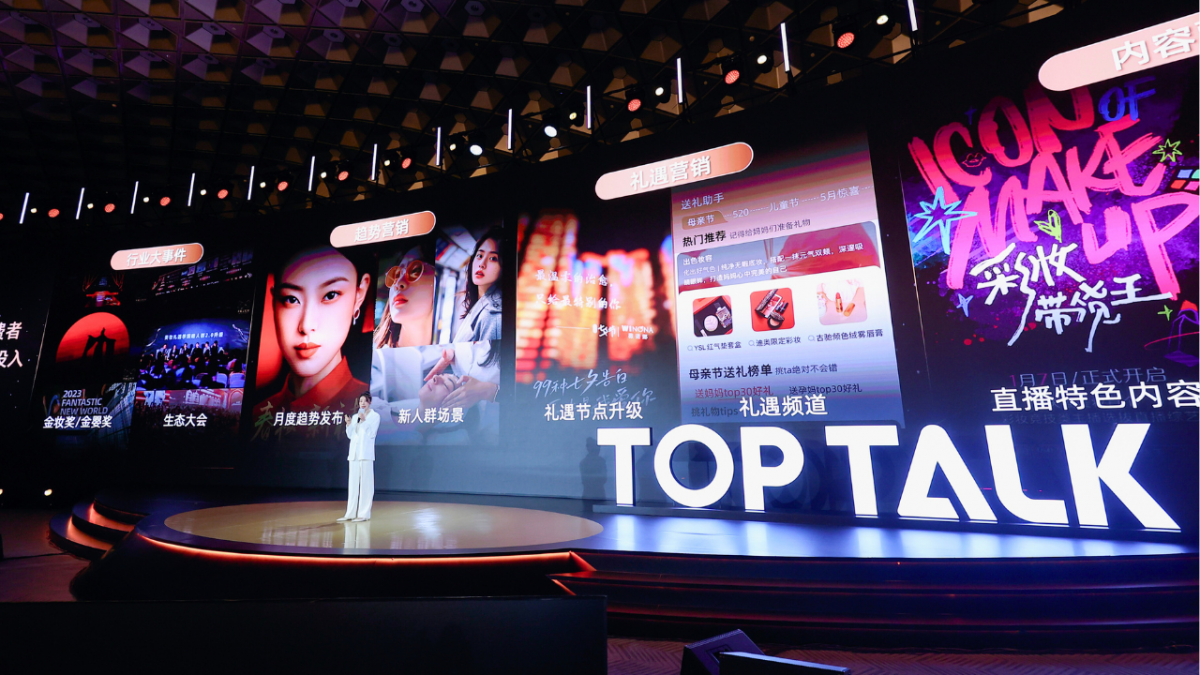
Taobao Mall is moving to reinforce its position as China’s largest B2C (business-to-consumer) online retailing platform by recruiting some of the country’s leading online retailers to also sell on its website.
At a press conference in Beijing today, Taobao Mall President Daniel Zhang announced commitments from 38 B2C sites to set up flagship stores on Tmall.com. Among them are well-known Chinese retailers with e-commerce websites such as the Yihaodian and Intime department store chains; Vancl, China’s biggest online apparel retailer; and leading online consumer electronics retailer Newegg.
By partnering with smaller B2C (business-to-consumer) websites that are in effect its competitors, Taobao Mall is furthering its goal of establishing an open online retailing “ecosystem” providing Chinese consumers with high-quality, branded merchandise along with a predictable shopping experience, Zhang said. “The key to elevating the overall retail experience for consumers across China is an open B2C platform that brings together retailers, e-commerce service providers and logistics service providers in an ecosystem that facilitates convenient cooperation between all parties,” Zhang said, later adding that “the message we are sending is we are not just welcoming consumer brands but also channel brands” such as Vancl and Newegg.
The announcement raises the stakes in the battle for China’s explosive B2C e-shopping market, which is projected to grow more than fivefold to RMB650 billion ($100 billion) over the next three years, according to Beijing-based research firm Analysys International.
Taobao Mall is betting its unusual open-platform business model—in which a wide range of online retailers, brands and products are aggregated onto a single site functioning as a matchmaker between sellers and buyers—will be more successful than the more conventional model pioneered by Amazon.com in the U.S., where standalone online retailers purchase their own inventory, sell directly to consumers and manage their own warehouses and delivery systems.
Since its launch in 2008 as a branded-goods offshoot of the giant Taobao C2C (consumer-to-consumer) marketplace, Taobao Mall has become China’s leading B2C player with a 33% market share in the second quarter, up from 28% a year earlier.
But the company has been feeling pressure from Amazon-style e-tailers such as Dangdang and 360buy.com, which are investing heavily in delivery networks and marketing campaigns to attract customers China’s second-largest e-tailer in the second quarter with a 12% market share, 360buy is reportedly planning an initial public stock offering in the U.S. that would raise at least $4 billion.
During the press conference, Zhang stressed that Taobao Mall would stick to its script. “Taobao Mall itself will not sell merchandise nor become a retailer,” he said.
He also noted that Taobao Mall, which earns money through commissions on transactions that take place on the platform, is profitable—360buy has yet to turn a profit—and is on pace to double the gross merchandise volume sold via the website from a projected RMB100 billion this year to RMB200 billion ($31.3 billion )in 2012. “We are not weighted down by the low gross margin pressures of taking on our own inventory,” Zhang explained, later adding that he “didn’t think it was viable” for a single e-commerce company to build out an extensive logistics system in China. Taobao Mall’s profit margin is on par with China industry averages, company officials said without giving specifics.
It’s unclear whether many of China’s B2C websites will want to share their profits with Taobao Mall, whose commission rates range from 1% to 5% of sales, depending upon the type of goods on offer. Zhang argued that the mall’s 400 million registered users provide “a huge commercial opportunity” to other B2C sites. By setting up flagship stores on Taobao Mall, they can efficiently reach a large online shopping population, without the high and rising marketing and advertising costs associated with the acquisition of new customers.
That view was echoed by Edison Chih, chief operation officer for Newegg, who in an interview with Alizila said that, while his company set up e-commerce operations 10 years ago and will sell more than $3 billion in consumer electronics in the U.S. and China this year, “we don’t want to build the (China) market by ourselves. The more brand exposure we have will help us build our customer base.”
Added Intime CEO Liao Bin: “If (Taobao Mall) can offer better service at lower cost, why not give it a shot?” Intime already set up its own B2C website but adding another storefront on Taobao Mall “greatly reduces the cost of customer acquisition,” he said.
Yu Gang, president of Yihaodian, which includes Wal-mart among its investors, noted that the e-commerce industry in China was still in its infancy, but consumers were becoming increasingly demanding of online retailers, wanting high quality merchandise, good service, and speedy delivery times. Unlike its sister platform Taobao Marketplace, which hosts hundreds of thousands of small merchants selling inexpensive goods, Taobao Mall requires its members to abide by basic service standards, including guaranteeing the authenticity of their products and providing seven-days-no-questions-asked exchanges or refunds. New B2C members are being asked for security deposits which Taobao Mall can tap into if companies breakthe rules, and no fakes are allowed on the site.
“We feel Taobao Mall has been raising the bar,” Yu said. “We think they are a high-quality, high-standard platform, and it’s time for us to be there ‚Ķ it’s not time (in China) to cut the cake, it’s time to grow the cake” through cooperation among e-commerce merchants.




